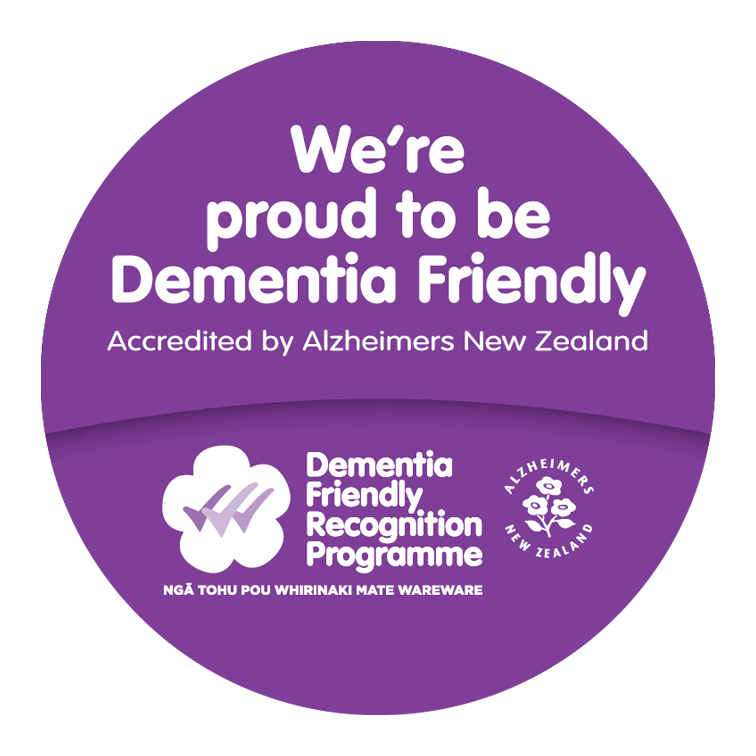- Home
- About us
- The Ryman Prize
- The winners
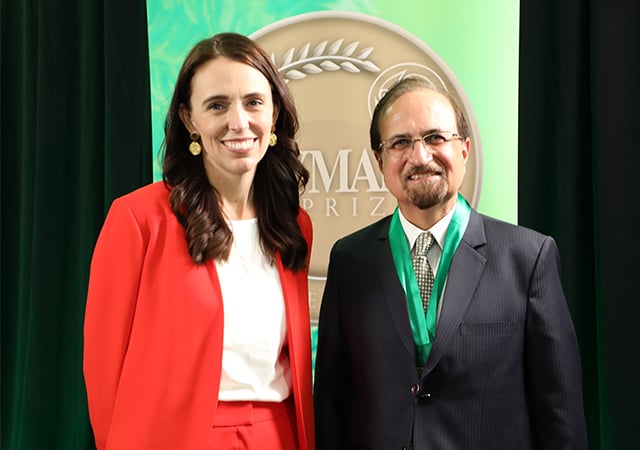
Video
2022 | Perminder Sachdev
Professor Perminder Sachdev has been awarded the 2022 Ryman Prize by the Right Hon Jacinda Ardern, Prime Minister of New Zealand.
Professor Sachdev is a world-leading researcher, academic leader, teacher and clinician who has dedicated his long career to understanding the causes and treatment of psychiatric disorders including dementia.
The award recognises Professor Sachdev’s 35-year career, which began in New Zealand at Auckland’s Kingseat Psychiatric Hospital in the 1980s.
Professor Sachdev’s win was announced by Prime Minister Ardern at an awards ceremony in Wellington today.
Professor Sachdev was singled out for this year’s prize for a truly unique contribution to the understanding of ageing, Ryman Prize Director David King said.
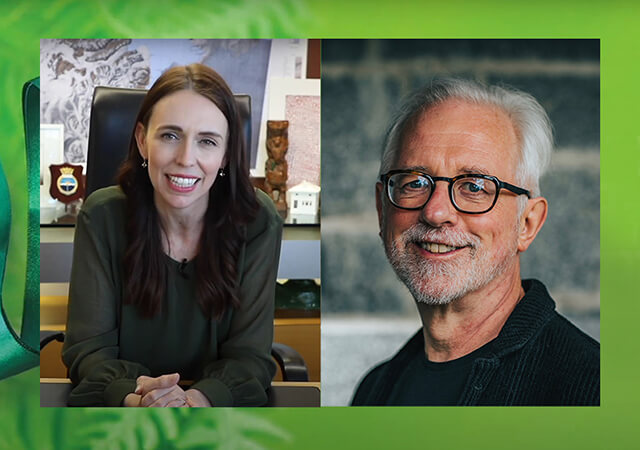
2021 | Kenneth Rockwood
Geriatrician, researcher, academic and anti-ageism campaigner Professor Kenneth Rockwood has won the 2021 Ryman Prize.
The award recognises Professor Rockwood’s more than 30 years of research, collaboration and practical clinical work for older adults living with frailty and dementia and his long-term campaign to battle ageism in healthcare.
Professor Rockwood’s win was announced by the Right Honourable Jacinda Ardern, Prime Minister of New Zealand.
The Ryman Prize is an annual $250,000 international award for the best work carried out anywhere in the world that has enhanced quality of life for older people. It is the richest prize of its kind in the world.
The prize has been awarded seven times and the winner is normally presented with the medal in person – but the COVID-19 pandemic meant Professor Rockwood could not travel to New Zealand to collect his prize and medal.
Professor Rockwood said the pandemic meant the health of older people was more important than ever.
“This is a fantastic recognition and the timing could not be better. It will give momentum and recognition to do a whole lot more research and work for a greater good.’’
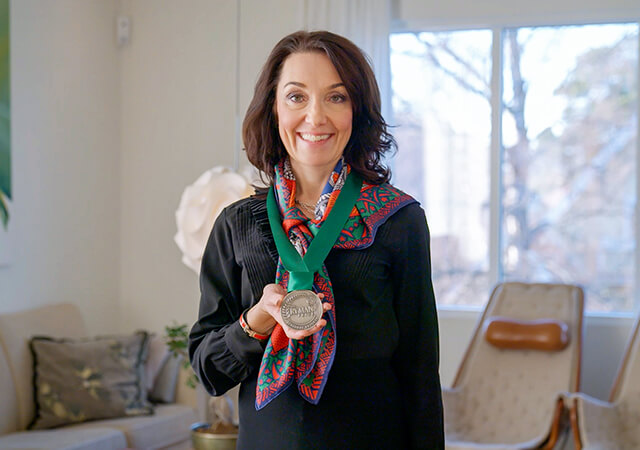
Video
2020 | Miia Kivipelto
The award recognises Professor Kivipelto’s more than 20 years of research into the prevention, diagnosis and treatment of cognitive impairment, Alzheimer’s Disease and dementia.
Professor Kivipelto was inspired to take on the research by the experience of caring for her grandmother who lived with Alzheimer’s Disease.
She was delighted to win.
“This is a great honour, not just for me, but for my team. I believe this will give us even more energy for what we do, which is more important than ever. We’ve kept going though COVID-19 and we’re getting great results, and we will keep going."
Professor Kivipelto is originally from Finland and is the principal investigator for the world-leading Finnish Geriatric Intervention Study to Prevent Cognitive Impairment and Disability.
Known as the FINGER study, it was the first large scale trial that showed multi-domain lifestyle-based interventions can reduce the risk of cognitive and functional decline among elderly persons who have increased risk for dementia. She is now leading the worldwide FINGERS network adapting and optimising the FINGER model in more than 30 countries.
In 2006 Professor Kivipelto and her team developed a tool that can identify dementia risk, which has been widely adopted and used as an educational and motivational tool and to target the interventions for those at risk clinically.
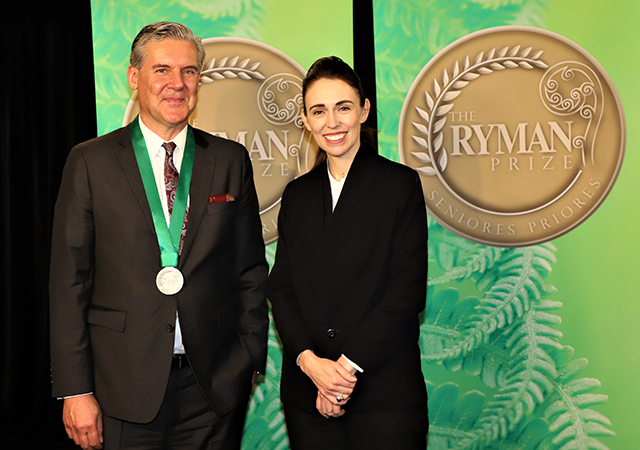
Presentation video
2019 | Michael Fehlings
Dr Michael Fehlings won the 2019 Ryman Prize in recognition of his long career dedicated to helping older people suffering from debilitating spinal problems.
The Toronto neurosurgeon was awarded the prize for his pioneering work for older people suffering from Degenerative Cervical Myelopathy (DCM), a degenerative neck compression problem which is the most common form of injury to the spinal cord.
Dr Fehlings is a surgeon, a researcher and a teacher who has had a major impact on how patients are managed, and his work over many decades has directly contributed to improving quality of life for many older people.
There is no doubt his research and his teaching will have a positive impact on many lives in the years to come.
DCM symptoms generally begin in patients over 50 and the condition is estimated to affect one in 10 people.
Little is known about how best to manage the condition, and its symptoms are often mistaken for other problems.
Patients report neurological symptoms such as pain and numbness in limbs, poor coordination, imbalance, and bladder problems resulting in loss of independence and in many cases, confinement to a wheelchair.
As well as working on treatment and management of DCM, Dr Fehlings has worked tirelessly to raise awareness of the condition within the medical profession.
Dr Fehlings is Co-Director of the Spinal Program and a Professor of Neurosurgery at the University of Toronto and a Clinician-Scientist in the Krembil Brain Institute, Toronto Western Hospital.
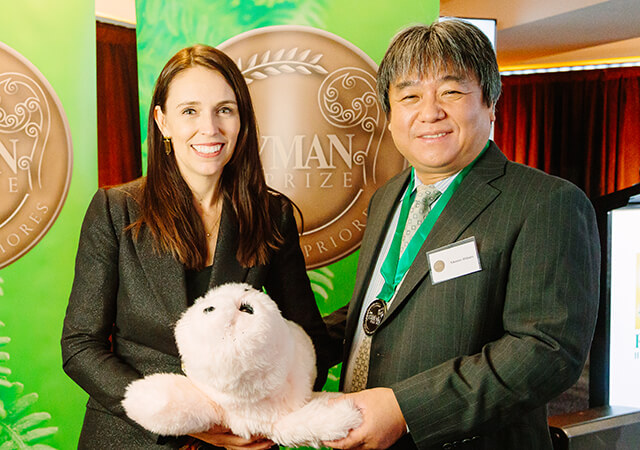
Presentation video
2018 | Takanori Shibata
Professor Takanori Shibata, Chief Senior Research Scientist at the National Institute of Advanced Industrial Science and Technology (AIST) in Japan, was awarded the 2018 Ryman Prize in recognition of more than 25 years of ground-breaking research into new technology to help ease the burden of older people suffering from dementia.
Professor Shibata was inspired by seeing the benefits that animal therapy could bring to dementia patients.
In 1993 he set out to use the latest advances in artificial intelligence and robotics to create a device that would be a practical help to older people with conditions such as dementia.
He created PARO, a drug-free therapeutic robot that uses sensors, robotics and sophisticated artificial intelligence software to mimic a real seal. PARO soothes and reassures patients by responding to touch and speech.
As well as winning recognition as a licenced medical device by the FDA, the design excellence behind PARO has been recognised with it being included in exhibitions at the Victoria and Albert Museum, the Louvre and the Museum of Modern Art.
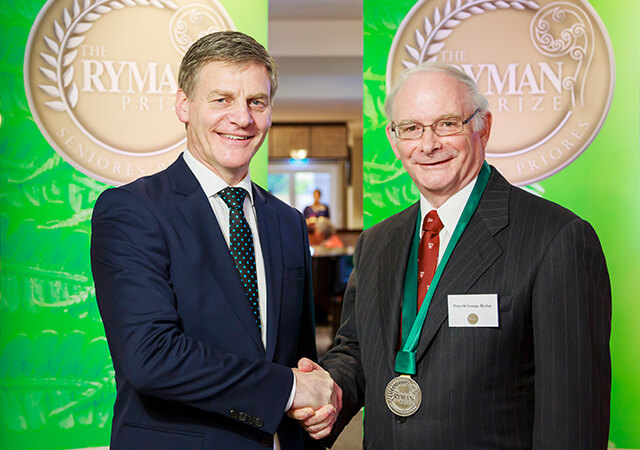
Presentation video
2017 | Peter St George-Hyslop
Professor St George-Hyslop, who splits his time between research labs at the Universities of Toronto and Cambridge in the United Kingdom, won the 2017 Ryman Prize for his more than 30 years of research into neuro-degenerative diseases.
His research work has focused on discovering the key genes and proteins that cause cells to degenerate in diseases such as early onset Alzheimer’s Disease.
His work has also helped other researchers better understand other neuro-degenerative diseases, such as Parkinson's, motor neuron disease, and Creutzfeldt-Jakob (mad cow) disease.
Since the mid-1980s he has carried out pioneering research in a field which was little understood. Millions of people around the world have Alzheimer’s and Peter’s research has had a profound influence on its understanding, and the ability to diagnose and treat it.
He has also been a prolific research author, and his 390 published scientific papers have been cited by other researchers more than 33,000 times. This means that his discoveries have been widely disseminated to form the basis of other research and discoveries.
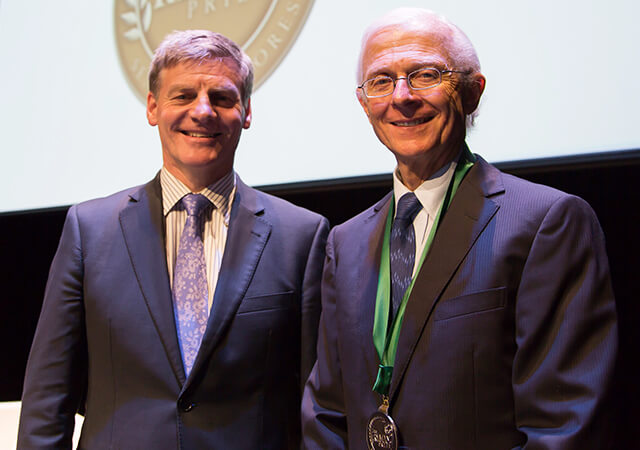
Presentation video
2016 | Henry Brodaty
Professor Henry Brodaty won the 2016 Ryman Prize as recognition of his three decades of work into ways to combat dementia.
Professor Brodaty is a psychogeriatrician who has spent his career working on ways to enhance the quality of life of older people with dementia and their families. He has also been a strong advocate for their rights.
He was a founding member and president or chair of the NSW and Australian Alzheimer’s Associations and Alzheimer’s Disease International. He is immediate past president of International Psychogeriatric Association and has been a member of numerous Australian and international committees aiming to advance the mental health of older people globally.
At the University of New South Wales in Sydney, he is Scientia Professor of Ageing and Mental Health, the founding Director of the Dementia Collaborative Research Centre and Co-Director of CHeBA, the Centre for Healthy Brain Ageing.
As a busy clinician looking after patients, he established the Aged Care Psychiatry department at Prince of Wales Hospital in Sydney where he is a Senior Consultant Psychogeriatrician and heads the Memory Disorders Clinic.
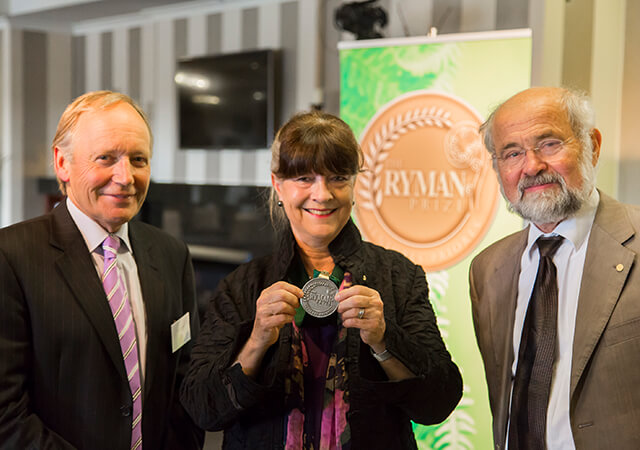
Presentation video
2015 | Gabi Hollows
Gabi Hollows was awarded the inaugural Ryman Prize in recognition of her work over more than two decades to help restore sight to more than 1 million people.
She is the Founding Director of The Fred Hollows Foundation, the charity she set up with her late husband Professor Fred Hollows. Together, Fred and Gabi gathered a team around them, working to tackle the problem of preventable blindness in the developing world and for Indigenous Australians. The Fred Hollows Foundation now works in more than 20 countries, providing affordable, high-quality, sight-restoring surgery to some of the poorest people in the world.
In the 23 years since the Hollows Foundation was established more than 1 million people have had their sight restored. The vast majority of the recipients are older people who could not have otherwise afforded to have cataract surgery.
ENQUIRIES AND NOMINATIONS





